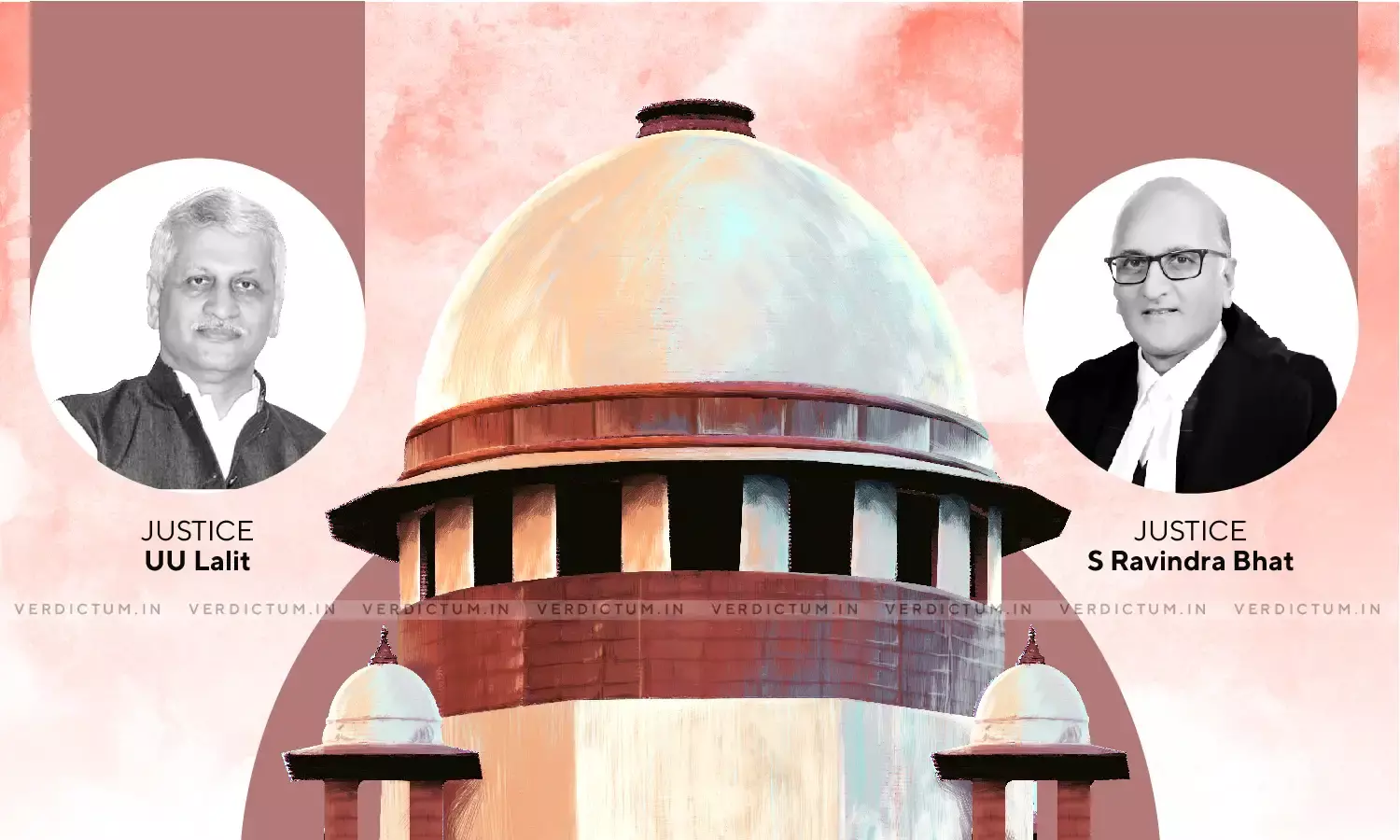Principle Of Res Judicata Is Fundamental To Judicial System - Supreme Court In An Appeal Arising From Suit

A two-judge Bench of Justice U. U. Lalit and Justice S. Ravindra Bhat in a Judgment rendered on 8th December'21 heard a matter related to the declaration of title and possession of suit schedule property of 1921.
Senior Counsel Mr. Neeraj Kishan Kaul appeared for the Appellant while Senior Counsel Ms. Kiran Suri appeared for the Respondent during the proceedings before the Supreme Court.
The Appellant had previously filed a suit seeking a declaration of title and injunction in respect of suit schedule property. His case was that the property was given to his grandfather by the Amaldar, Bangalore South Taluk and that after his death the property belonged to the heirs, and thus, he was the owner of the property.
On the other hand, the Respondent Karnataka Industrial Corporation (KIC) alleged that the Karnataka Government had granted the property to it for non-agricultural use and that the Appellant had sought to interfere with the Respondent's possession.
The Respondent had filed suits in the Trial Court and then approached the High Court and the Supreme Court, where he had not received any relief. The Respondent again filed a suit in the Trial Court, regarding the deemed cancellation of the grant, which the trial court had rejected looking at the history of the matter.
The Respondent appealed the matter in the High Court contending that the rejection of his plaint in the Trial Court was erroneous.
The High Court had set aside the order rejecting the plaint and held that the Trial Court should have issued summons and that its suo motu determination on the maintainability of the suit was erroneous.
It was contended by the Appellant before the Supreme Court that the High Court fell into error in overlooking the fact that the subject matter of KIC Suit-II was barred by res judicata as the issues in it were directly and substantially in issue in both the 1995 Suit and KIC Suit-I. Further, it was argued that the decision in the matter had already attained finality before the Supreme Court in Civil Appeal No. 10086/2010.
Mr. Kaul, further argued that High Court erred in ignoring that in terms of the mandate of Order II Rule 2 of the Code of Civil Procedure, 1908 (hereafter called "CPC"), KIC, in KIC Suit-I was bound to include the whole claim which it was entitled to make in respect of the cause of action and if it omitted to sue in respect of, or intentionally relinquished, any portion of its claim, it could not afterward sue in respect of the portion so omitted or relinquished. While the Respondent argued that KIC I (first suit) was a suit for bare injunction and the title to the Suit Schedule Property was not considered. Therefore, the subsequent suit (i.e., KIC Suit-II) seeking title and possession was not barred.
The issue that was dealt with by the SC was whether the Trial Court wrongly rejected the suit that was filed by the Respondents as was found by the impugned judgment of the High Court.
The Supreme Court observed that "KIC no doubt sought only a permanent injunction in its first suit. However, it is a fact of equal importance that the appellants-herein consistently agitated KIC's title. KIC was a party to those proceedings. All the courts concurrently held that the grant, on which KIC based its possession, was deemed to be cancelled. Therefore, KIC could, by no procedure known to law, claim in another suit, that it was the absolute owner by virtue of the self-same grant, which was deemed to have been cancelled. The trial court therefore cannot be faulted with for holding that the question of title was directly in issue in the previous proceedings, and merely because it resulted in findings adverse to KIC, it could not escape being bound by those findings"
The Court additionally opined, "The impugned judgment (in holding that despite the fact that in the previous proceedings the issue of title stood concluded, the trial court had to proceed with the suit) is clearly in error."
Further, the Bench relied upon the case of Vithalbhai (P) Ltd., v Union Bank of India, where it was held that a plaint can be rejected at any stage.
Also, the Court placed reliance on M. Nagabhushana v State of Karnataka & Others, where it was ruled that the principle of res judicata is fundamental to the judicial system.
Accordingly, the Court set aside the impugned judgment of the High Court and allowed the appeal.
Click here to read/download the Order

